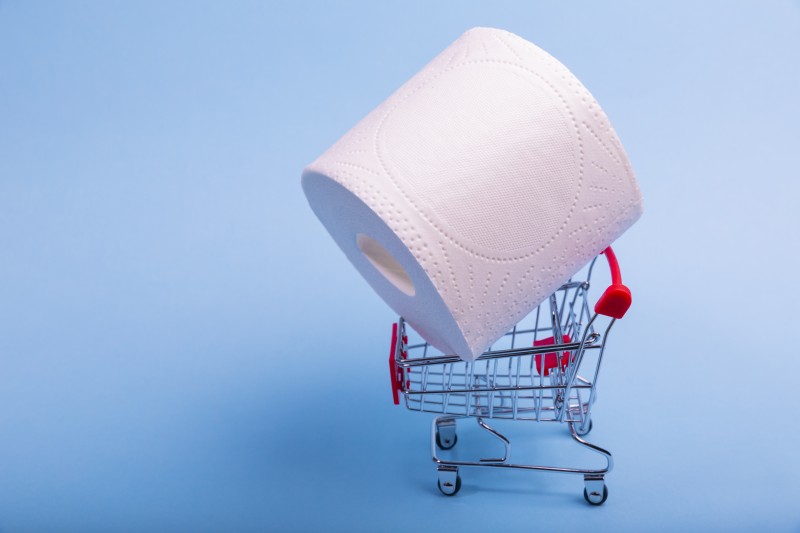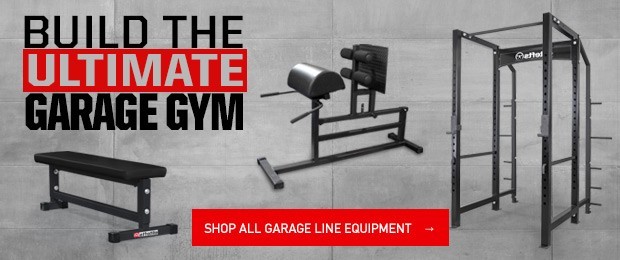
There is one thing for sure, we're heading into uncertainty and unprecedented times. We have encountered something that hasn't happened in a century (the flu of 1918), and in a world that is entirely different than it was back then. This pandemic has led to many people acting strangely and hoarding everything that they can from toilet paper to aspirin.
The purpose of this article is to give others (including myself) grounding thoughts as we move forward.
My first thought is that we always have to go back to the circles of concern and control. While this is an old article and a simple concept, it's always valuable to keep this in the forefront of your mind. There are many things to fear right now, and many things not to. Yes, it is uncertain. We don't know what will happen next. We don't know how long this will last. We don't know a lot of things. This will lead us to anxiety, panic, and other things that coincide with these emotions. Just simply look at the lack of toilet paper in the stores. This is something that befuddles me and makes no sense. However, this is well encompassed in fear of missing out, and lack of prefrontal cortex thought as it seems that everyone's thoughts go straight to the amygdala rather than anywhere for cognitive thought. This is an upper respiratory virus, not a lower gastrointestinal virus. If the only foods were those that caused diarrhea, sure, I get that. It doesn't. Hand sanitizer sales went through enormous increases, leading to a nationwide shortage, as well as the N95 masks.
RELATED: Serious Training Considerations for COVID-19
Currently, we are reaching a point where many communities are in essentially a lockdown. The city of Miami has enforced a curfew and has shut down every business other than grocery stores, pharmacies, and a few other essential businesses. Social distancing, a curfew, and lockdowns have people confined within their walls for most of the day. There is an inability to go out and see and experience the world.
There is an inability to talk with your neighbors and enjoy their camaraderie.
I admit that just merely writing these statements causes an increase in anxiety for me. Then I have to step back and think, which of these things can I control? There aren't any of the things that are happening to me that I can directly control. I can't control what others do, but I can control my response. Instead of choosing to focus on what has happened, focus on what you can do. I tend to get relief after I have processed through some of the anxiety-causing issues.

xenlumen © 123rf.com
For instance, toilet paper – I have seen so many videos of people having physical altercations over toilet paper. It is unreal. If we have no toilet paper, what comes of it?
Do we have to have dirty butts?
Has toilet paper always been around? Are there people who don't have access to toilet paper daily, and do they live? To answer this, nothing will come of it, we don't have to have dirty butts, toilet paper was only invented in 1857 so no, it hasn't always been around, yes there are people who don't have access to toilet paper, and yes they live just fine. What can we do? If you have no toilet paper, you can always jump in the shower and clean your butt. Many people can stand to have an additional shower or two a day, so that's not a big issue. Also, there are many people who prefer the bidet to toilet paper anyway. There are detachable bidets that are available to wash your butt without toilet paper and that may be something worth investing in. If it gets down to it and you need a butt wipe bad enough, there is always that drawer of unmatched socks. Hey, if you're not going to find the sock anyway, at least get some use out of it.
For the hand sanitizer, washing your hands does a better job than this anyways. Hand sanitizer is for the rare time when you can't wash your hands, rather than as a primary line of defense. If this is still an issue, realize that there is rubbing alcohol or ethanol that is greater than 60% (120 proof) that can be used to sanitize. Wash your hands a ton, and you're going to be ahead of the curve.
For the masks everyone is looking for, let's just don't do it. Let's save these for the health care professionals who we have now made a shortage for. What can we do? Stay home. Only go out when it's absolutely necessary and when you do, wash your hands, keep your hands from your face, and sanitize everything as soon as you get out. That's what the best thing to do is.
Some fear a lack of food.
This is something that is absolutely an issue, as well. Folks look in the store and see empty shelves and begin to panic. Relax. There are tons of things to eat in grocery stores, even now. It may not be your number one choice, but it will be just fine. Learn to try new foods, processed and non-processed. Learn how to cook dry beans, lentils, etc. If you have a yard, this is an excellent time to learn how to garden. Even if space is limited, there are ways to grow your food with containers or an altered approach like square foot gardening. I remember the story of Queen Nanny of the Maroons, where her people were starving, and she planted pumpkin seeds on a hillside, and then they were able to eat. Growing food does not have to be difficult. All you need is soil, seed, sunlight, and access to water.
My other thought comes back to a quote by Albert Einstein, "Out of clutter, find simplicity. Out of discord, find harmony. In the middle of difficulty lies opportunity." I remember seeing some people have some massive ideas and utilized the economic decline from the housing crisis as an opportunity to improve their own wealth. Try and find whatever opportunity arises from this. I don't know what that will be for you, but looking for the opportunity will at least give you something to do other than worrying.
Shifting to S&C, one area I have seen strength coaches doing fantastically is using this downtime for education. There have been several Zoom or other webinars that have come available. Many of which have been free and are fantastic at stimulating thought and delivering information. While I am all for in-person conferences and in-person communication, we must make sure that we are doing what we can to stay safe. The sharing of information and different training processes will accelerate athletic development in the future.
RECENT: Unstable Load Training for the Bench Press
Also, many coaches have been going through burnout. For them, this is a great time to find themselves again. Spend time doing things you enjoy. I, for one, have been enjoying the heck out of some of the Livestream music shows different artists have been putting out. Cody Canada has been doing three-hour shows on Wednesday nights, so be sure to check that out if you like Cross Canadian Ragweed or the Departed. Catch up on sleep, get out and take walks rather than lift heavy, do something to help you move better rather than just lift heavy. It's okay to have a change of pace. It's not okay to just be stuck. Try and get into meditation, as this will help with restoration. Connect with people you haven't talked to in a long time on the phone or via some other electronic communication. Again, I love it best in person, but when you can't do what your favorite is, do what you can.
Whenever this lockdown is over, we have to re-evaluate our training plans. Many athletes are training on their own with bodyweight circuits, light dumbbells, etc. These dedicated athletes are trying to ensure that they maintain everything they possibly can so they can achieve in their playing arena. However, many athletes won't be exercising at all. As this continues, we may reach the summer before anyone is able to train again. For some coaches, they are going to want to cram as much as possible into training before the season begins to make sure their athletes are ready. Unfortunately, there is no way to fast track adaptation without a myriad of performance-enhancing drugs. When coming off an extended layoff, it takes time to slowly ramp up training loads. If you remember the work by Gabbett on acute:chronic workload, when there is a large spike in training volume, injuries are more likely to occur. While some scoff and say, "That doesn't work. It doesn't predict injury." I will contend that injury has no single causative factor, and while training stress balance isn't the only thing that causes injury spikes, it is a risk factor involved. To top that off, the amount of stress that the athletes are going through as a part of daily living is enormous. I saw on the news that a college football player lost his father to the virus. I have students with their parents being infected and forced into isolation in a hospital. They are unable to see their parents and unsure if they are improving or doing worse.
What then do we do as strength coaches? Slow cook them. Go back to the basics and just do sets of 10 and progressive overload. Focus on their ability to move. Make sure you have a one- or two-week anatomical adaptation phase. If they spent too much time seated, their hip flexors might not be ready for high-intensity work, and this could lead to injury. It may even be useful to alter the periodization structure a bit. As power is best developed at intermediate loads and velocities, it may be a good idea to start in this phase rather than the typical hypertrophy phase. The utilization of lower volumes and intensities may be good to ramp up the training process and then look at the increased volumes and intensities of a strength phase. Then depending on how much time is left over, look at returning to a power phase. Also, remember that the in-season is the longest continuous period of training you have. It's okay to defer some training or phases of training to that period if needed. Realistically, those who are on the field will most likely not be able to utilize that time to enhance physical qualities in exchange for time spent on developing their sport skills, but most backups, etc. will be able to deal with this. I offer an alternative to the traditional structure of the off-season or pre-season cycle. Perform 1-2 weeks of an anatomical adaptation phase, 2-3 weeks of a power phase, however many weeks of an available strength phase, and then switch back to power as you enter the season.
Work on yourself. Focus on what you can control. If you can't control it, then control how you respond.
Most of the time, the fear and anticipation of what is going to happen are a lot worse than the actual experience. Remember to breathe.
Header image credit: ktsdesign © 123rf.com











1 Comment